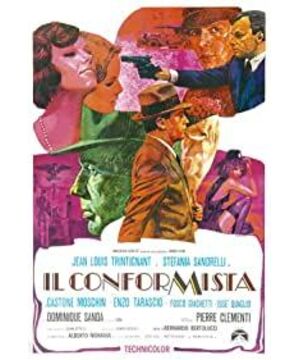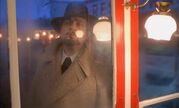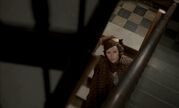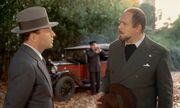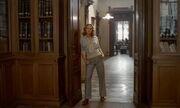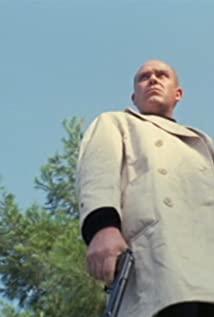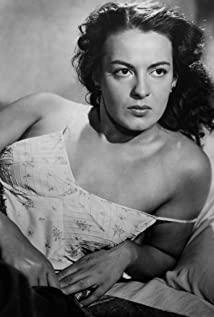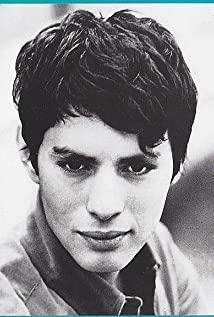Vittorio Storaro, who has won three Oscars for Best Photography, is the photographer of this film, and "The Conqueror" is the first film he collaborated with Bertolucci. Storaro said that there are three stages in his photographic life. The first stage followed in the early films was deeply influenced by the painter Caravaggio. The control of the light in the picture carries the narrative. Light and darkness are like the sun and the moon. A certain balance between heaven and earth is also a balance between consciousness and subconsciousness. The starting point of his view of photography comes from this, using suitable light and shadow effects to assist the story.
The movie's number one male protagonist, Marcello, is the one who constantly wanders in the light and shadow. The film's narrative adopts the form of interspersed narrative, which unfolds Maceró's childhood and multiple character states before and after the work of fascist spies. These small moments of life explain the layers of light and darkness, as well as the complex life of alternating light and shadow. Although "Family" is not a grand story in the film sequence of the two masters, it allows the audience to smell the new talents. Light and shadow have become the tool of the two writing and the main heart of the narrative.
In Italy under the influence of fascism during the war, Marcello was eager to play for fascism, whose life lost his sense of direction. Joining an organization in his life value sequence would make him a meaningful person to society. At that time, people who wanted to serve fascists were divided into several categories, those who were afraid, those who asked for money, and those who were purely for faith, but Marcello's purpose was not here. Most people want to be different, but Marcello wants to be an ordinary person. He has repeatedly admitted that joining fascism will help him become an ordinary person.
The title of "ordinary person" has formed a huge internal need in a certain type of person, which is a kind of identity. Telling a person's desire for ordinaryness is like showing only the corners of a person in a dark place. The audience is eager. Want to know everything about him that is hidden. Through the confession facing the pastor, he revealed that he had an unscrupulous same-sex history with a driver named Lilo when he was young, and how he was forced to kill Lilo.
Being both a killer and a homosexual is the main reason for Macello's inability to live a calm life, and being born in a religious country, Italy, has exacerbated this contradiction. Therefore, in addition to serving fascists to gain social significance, just as blind friends and priests agree, ordinary men will look back at beautiful women's butts and marry a middle-class woman as his wife. These are standard equipment for ordinary men, and Marcello needs these standard equipment.
In the film, there are three kinds of light and shadow flooding the screen, Hexi Nuanyang, Dim, and cut sunlight. The painting style of Caravaggio mentioned in the previous article was inherited in Storaro's film. The reason why a painter painted with contrasting light and shadow was because he realized that the world is simultaneously shrouded by light and darkness.
When Marcello recalled his childhood, the picture always relied on the warm sun, with clear saturation, and things were endowed with beauty.
When he came to his mother’s house, it was gloomy and gloomy. The mother was bedridden with morphine injections and raised the driver as a concubine. She wore a black blindfold to refuse the light. There was an injected morphine needle at the bottom of the bed lying on the bed. With a black dog in the dark.
Another space that contrasts sharply but is also gloomy is the mental hospital where Marcello's father is located. The vast and depressed white marble space is like heaven. It is shrouded in dark clouds and there is no shadow under the feet of the characters.
Marcello mocked his father's manuscript in front of his mother, and wanted to use the manuscript written in his insanity as his wedding testimony. There are countless "young criminal laws" in his father's life experience, which are the marks of war left by fascists. From his father, he can't find the answer to self-healing.
Childhood is a saturated warm sun, symbolizing beauty; the parents and their own past after growing up are dark and invisible, symbolizing sadness. And his subconsciousness led him to the front of self-certification. That area has his marriage and fascist career, where there are traces of fierce burning sun on everything, and the shadow cuts on him like a blade. Around.
We know that the fate of Marcello and Caravaggio are equally tragic, there is as much darkness as there is light,
We feel the cruelty from the light and shadow, this is ordinary evidence.
After growing up, Marcello used to have more pure sunlight, and the only light left on him was actually in his former university teacher Quadri. Marcello has an unfinished thesis with the assistance of his teacher, just like this unfinished teacher-student relationship. Quadri, who is also an Italian, chose to go to Paris, France in order to fulfill his political ideology. In his opinion, leaving Italy with political ambitions was a kind of resistance. In the past, this puzzled Marcello as a student. .
It’s hard to imagine that the purpose of Marcello’s meeting with his teacher many years later turned out to be to kill him. Quadri is now an important figure in the anti-fascist alliance. To remove him is Marcello’s first mission since his tenure, to become an ordinary person. cost.
Quadri appreciates Marcello among the many students, especially his unfinished essay on the metaphor of Plato's cave. What Marcello's essay wants to explain is not only his own political thoughts, but also a ritual to consolidate the friendship between the master and the apprentice. A movie with an excellent historical outlook can always effectively entangle the two clues of the character and the background of the big time. The same streamer is just such a movie, he reveals the influence of politics on the individual through the fate of the small person. If it is not for each camp, this teacher-student relationship will not be interrupted.
The philosophical thinking of the thesis actually corresponds to the inner beliefs of Marcello as a student. The metaphor of the cave is a kind of person who lives in a cave and is shrouded in darkness. Looking at the shadow cast by the fire from the cave in the distance, I think That is reality, it is impossible to distinguish between fantasy and reality. After the people who left the cave know the truth, they have a more fundamental realization that they want to return to the cave to save their companions, but they may also be mistaken by their companions for betraying the party, and thus be blocked. The metaphor of the cave proves that it is difficult for prisoners to gain freedom.
This also verified why the title of the film was named "The Conqueror." Marcello was like a prisoner in a cave. Like most people in wartime, he couldn't get out of the shadow of fascism to obtain an objective perspective. Falling into it one after another, and finally having to work for it for its own social significance, becoming a fellow in a cave.
The audiovisual skills of Storaro and Bertolucci are brilliantly presented in the dramatic passages of the conversation between the master and apprentice in the film. The cave theory is visually presented only by opening and closing the window. The teacher Quadri is the one who enlightened the cave, and Marcello is the one at the bottom of the cave. After the conversation, Quadri slammed the window open, the sunlight entered the house, and Marcello saw that his shadow on the wall disappeared.
In the past, Quadri had given Marcello the shadow cast on the wall, whether it was real or not, but at least it was a kind of hope, and the departure of Quadri made Marcello lose the shadow.
But the mentor Quadri actually tried to redeem Marcello from two aspects. First, he responded to Marcello by saying: The true fascist would not speak like you. Second, the teacher's opening the window alluded to an act of salvation, and Quadri tried to draw the student Marcello out of the abyss and bring light to him.
But what's abusive is that every time the excitement of the music is repeated, the audience knows that the organizer has come to remind Marcello that it is time to shoot. Marcello's honeymoon is getting harder and harder. The internal contradictions are intertwined with the external contradictions, like a huge whirlpool leading people to the most urgent place in the center, he can't move.
Another advanced treatment of light and darkness is on the protagonist’s blind friend. The blind friend once said: ordinary people like to see things similar to him. These words allude to the similarities between the two. Although Marcello is a discerning person, he is actually no different from a blind man, regardless of whether he intends to play himself as the "blind man" of the era. Blind people are a type of person who can't see the light, and Marcello's Master Killer undoubtedly pushed himself completely into the darkness.
After many days of the assassination scene, we found that Marcello's wife became worried and the visible light source in the room turned blue.
Looking back at the dance studio scene of Mrs. Quadri at Marcello’s private meeting in Paris, Mrs. Quadri knew the identity of Marcello’s spy, but at the same time developed a good impression of the man in front of him. Lan is mapped on her face, and the shot from warm to cold can give people such a shocking feeling. We can also conclude that in this movie, blue means fear.
The dim blue set the color for the climax of the film. The ordinary life that Marcello yearned for finally ended in such a way that only the moonlight in the dark night is blue.
At the end, he met with a blind friend, and the two walked on the bridge that was constantly swept by searchlights. At this moment, the figures were heavy and intermittent. At the corner of the alley, God once again made a joke with him. He came across a gay driver who sexually assaulted him. He did not die. Who would have imagined that Macerodo was not a murderer in the coming year. How many years he has cared about it. ? How much did he pay for the light to fill in the light that God accidentally took away from him?
The true side of things can easily be concealed, just like the prisoner in the cave’s misinterpretation of freedom. For many years, Marcello wanted to get rid of one illusion, but he ushered in another illusion. At this moment, the fascist regime has fallen, and he is probably powerless. Going back to the past, I got out of control in the crowd.
"The Concurrent" has a dual-attribute ending, and the end of the tragedy also seems to mean a new beginning, at least he can face his new identity calmly. So the film gave a long and intriguing shot. The camera slowly moved forward. The iron railing that Marcello relied on was like the entrance to the cave where the prostitute was. It was dimly lit inside, and the fire from the hole illuminated Marcello’s face. Whether a faint light can illuminate his future.
View more about The Conformist reviews


